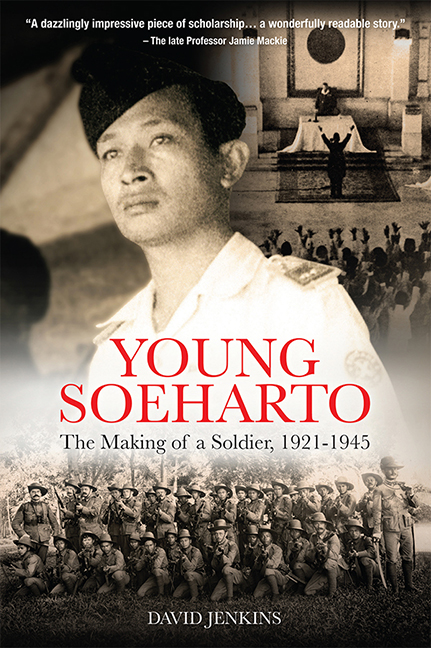Book contents
- Frontmatter
- Contents
- Foreword
- A Note on Spelling and Names
- A Note on Military Organization
- Maps
- List of Charts
- Preface
- Soeharto Family Tree
- 1 “The Sultan came to me and asked about that Family tree”
- 2 “The Cork on which the Netherlands Floats”
- 3 “They Regard Holland as a very Weak Power”
- 4 “An Invisible Motivating Force”
- 5 “What kind of Islam is this?”
- 6 “Soeharto is a Closed Book”
- 7 “I was Suited to the Disciplined life of the Military”
- 8 A Reassuringly Familiar World
- 9 A Policeman for the Japanese
- 10 An Armed Force Conjured out of Nothing
- 11 “The whole Island was Ablaze with Enthusiasm”
- 12 “Don’t make them too Strong!”
- 13 “Soeharto was a Cautious Man”
- 14 “Why did they Choose Soeharto?”
- Glossary and Abbreviations
- Notes
- Acknowledgements
- Bibliography
- Index
- About the Author
5 - “What kind of Islam is this?”
Published online by Cambridge University Press: 09 October 2021
- Frontmatter
- Contents
- Foreword
- A Note on Spelling and Names
- A Note on Military Organization
- Maps
- List of Charts
- Preface
- Soeharto Family Tree
- 1 “The Sultan came to me and asked about that Family tree”
- 2 “The Cork on which the Netherlands Floats”
- 3 “They Regard Holland as a very Weak Power”
- 4 “An Invisible Motivating Force”
- 5 “What kind of Islam is this?”
- 6 “Soeharto is a Closed Book”
- 7 “I was Suited to the Disciplined life of the Military”
- 8 A Reassuringly Familiar World
- 9 A Policeman for the Japanese
- 10 An Armed Force Conjured out of Nothing
- 11 “The whole Island was Ablaze with Enthusiasm”
- 12 “Don’t make them too Strong!”
- 13 “Soeharto was a Cautious Man”
- 14 “Why did they Choose Soeharto?”
- Glossary and Abbreviations
- Notes
- Acknowledgements
- Bibliography
- Index
- About the Author
Summary
If Soeharto had spent his first eight or nine years in a hamlet west of Yogyakarta, he was to spend most of the four or five years that followed in the three small or medium-sized towns—Wuryantoro, Selogiri and Wonogiri—southeast of Solo. His character, already shaped by a sense of grievance, rejection and humiliation, by an awareness of the intrinsic inequalities of life and by a powerful desire to better himself, was now to be influenced in three additional ways. First, as an adolescent he was to develop an abiding interest in Javanese religion, or Javanese mystical beliefs as it is also known, rather than in Islamic rituals and beliefs, about which he had in any case only a rudimentary knowledge. In the course of that process, he was to learn more about the distinctive Javanese philosophy of life. Second, he was to absorb many of the values of the priyayi, the Javanese official class. Finally, he was to develop a deep interest in the subject of agriculture. These values and these interests were to remain with him for life and were to have a profound influence on his presidency. This chapter will focus on his interest in Javanese religion, which, for many years, perhaps always, appeared to loom larger in his life and his thinking than any strict adherence to Islam.
As noted earlier, Islam has played a vital—and frequently divisive—role in modern Indonesian politics, and during his presidency Soeharto was to promote his own surprisingly rigid views on the subject, drawing on beliefs he began to acquire during his early years in Central Java. Although nine out of every ten Indonesians identify themselves as Muslims, on Java, Clifford Geertz argued in his 1960 book The Religion of Java, it is necessary to distinguish between three broad cultural-religious communities, or aliran (streams). One community (abangan) is made up of those who, while nominally Muslim, follow a syncretic Javanese religion that often incorporates elements of animism, Hinduism, Buddhism and Sufism, the mystical tradition of Islam, with an emphasis on ascetic practice, meditation and mysticism.
- Type
- Chapter
- Information
- Young SoehartoThe Making of a Soldier, 1921–1945, pp. 78 - 102Publisher: ISEAS–Yusof Ishak InstitutePrint publication year: 2021

